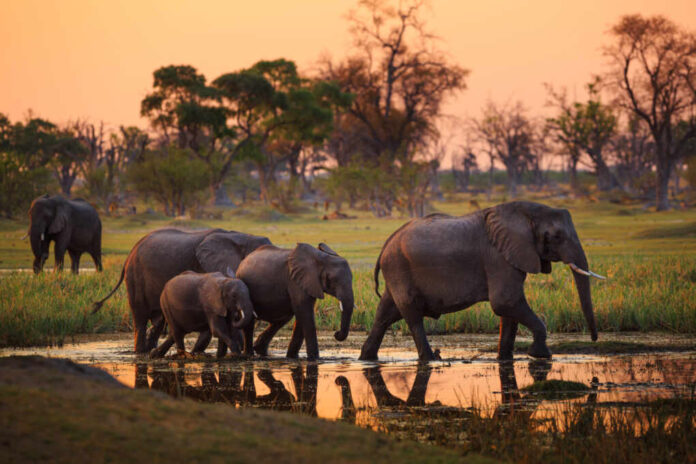
Botswanan President Mokgweetsi Masisi has threatened to send 20,000 elephants to Germany in response to German virtue-signaling calls to ban trophy hunting.
Botswana is currently suffering from elephant overpopulation and there are now over 130,000 elephants scattered across the African nation, although the country’s carrying capacity is for a maximum of 60,000.
This is a remarkable turnaround in the elephant population for Botswana, as in the 1960’s, the population was less than 10,000 elephants. By the 1990’s, it had grown considerably to around 80,000, which was considered a great success for animal preservation.
But now, due to an over-abundance of protection policies and the influence of zealous animal rights groups, the nation is on the brink of being completely overrun by the majestic, yet potentially destructive giants.
As one Botswanan citizen told the Voice of America radio station, “We are now forced to collect our livestock early as we are afraid of the elephants … In the cattle posts, people have deserted, it’s only empty homes. By 4 pm, we have rounded off the animals … so that by the time the elephants come, they do not find anyone. We wake up in the morning only to find their tracks. There are too many elephants.”
Additionally, the burgeoning elephant population threatens the balance of nature by crowding out other species and destroying the environment as habitats are degraded by the enormous creatures tearing down trees and drinking vast amounts of water.
And even though some in Germany have actually considered taking in some of Botswana’s elephants to help alleviate the country’s problem, realistically, there is little they can do.
Botswana has an elephant problem. The director of Nuremberg zoo weighs in on whether Germany could adopt some and where they could live.
…I did not know this was an open question.https://t.co/p8YUk00Lwd
— Esther Schindler (@estherschindler) April 8, 2024
As a result, Botswana has opted for a return to trophy hunting. This, they say, will help keep the elephant population under control while simultaneously creating an income source as wealthy Western hunters would pay thousands of dollars just to be allowed to hunt on their ranges, potentially generating millions of dollars for the African country.
While the preservation of nature and protection of animal species is something anyone can get behind, leftist governments and virtue-signaling activists always take it too far, putting heart before head and remaining out of touch with reality as they lack a basic understanding of what it is like for humans and nature to coexist in reality.
“We are paying the price for preserving these animals for the world,” said Masisi, adding that it is very easy for leftist leaders “to sit in Berlin and have an opinion about our affairs in Botswana.”
“You should live with the animals the way you try to tell us to,” he concluded.














